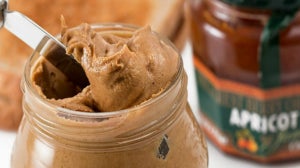
~
Written by Ash Wilson - MyproteinIntroduction
As a religious gym goer and bodybuilding enthusiast, running marathons was never going to be an easy task. In this article I have explained the path I took to get me to the finish line. The training I implemented, the diet I maintained, nutrition I followed, and the supplements that pushed across the finish line.
I've included my top tips from the emotional experience of running a number of marathons and the incredibly steep learning curve I've endured.
This year, weighing 95 kg, I set myself the seemingly insurmountable task of running a sub 4 hour marathon. With strict guidelines to avoid losing muscle and continuing my daily hypertrophy training plans I crossed the finish line in 3:58:04, surpassing all expectation. The journey of a thousand miles does indeed begin with one step, as does that of 26 miles here's how I started mine…
Marathon Training Plan
Q: When should you begin your marathon training?
A: This obviously depends on a few factors, such as how frequently you run currently, how fit you would say you were and your current lifestyle. If you have an active lifestyle, healthy eating and run frequently, at least 1-2 times per week then you could start your training with as little as 8 weeks to go. However I would recommend you start a solid 14-17 week plan. These are readily available online on various marathon branded sites and are usually broken down into beginner/intermediate/advanced. Beginner being a first time marathon runner, intermediate for those wanting to break a BP and advanced for frequent competitors, or even elite.
.
Q: How should your training be structured?
A: However long your training program, the weeks will be set up in the same format, with the changing variable being the distance run each week. The distances will generally increase, until the final few weeks where you will taper your training down all the way to race day.
You need to choose one day to place your long runs; these may go up to a distance as far as 22 miles, so this day will be followed by a rest day. Stereotypically the long run would occur on a Sunday, when most people generally have the most time to run such a long distance.
You will have a long distance set by time in the middle of the week, this will generally be marathon pace run around 50% of the Sunday long distance run, just to increase the mileage you have run and to get your legs and body used to running for a longer period of time that it is used to.
Make sure that you incorporate as many rest days as needed especially after the longer run days, along with this I would recommend you spend time stretching or foam rolling your leg muscles to help prevent injury and increase the elasticity of your muscle fibres.
Q: How do I Run Sub 4 Whilst Maintaining Size and Strength
A: As an individual who participates in resistance training 5-7 times per week, I wanted to combine the two training programs and sacrifice as little muscle mass as possible. I continued to train muscle groups as normal, but moving leg day to the first few days of the week, allowing my legs to recover for the long run on Sunday, as this is the most important part of the week’s training in my opinion.
I changed my morning cardio from the bike to small runs when I did not have a rest day. Generally on Tuesday, Wednesday and Friday mornings I would go for 20-30 minute runs, changing speeds, running up and down hills, just varying my training on these mornings. The Wednesday would generally be the slowest run anywhere from 30 minutes to 50/60 minutes at a very comfortable steady pace.
If I simply couldn't get myself up for these morning sessions, I jumped on the treadmill after my weights session in the evening, working on intervals such as 3 minutes low intensity followed by 1 minute full out, repeating this around 5 times.
Q: How should my training progress over the weeks?
A: I would set your training up so that the first week your long run is a run you can handle without stopping, and then increase the distance 1-2 miles each week. I began my 14 week plan with an 8 mile long run, I then ran the same distance the following Sunday looking to decrease my total time. The following week I ran 10 miles, 12 miles etc., pushing all the way to 22 miles with 3 weeks to go until race day.
The following two Sundays were 13 miles and then 5 miles with one week to go, tapering my performance ready for race day. The midweek distances/times stayed generally the same, and were there to continually increase my fitness levels and keep up my cardio during the resistance training.
Q: When should you stop your training?
A: During the final week I didn't run at all. I also didn't train my legs in the gym for 2 weeks before race day. I treated Saturday as a rest day and chose. For my training my final run was the Sunday before race day, for 5 miles, in my race day clothing to almost practice the first 5 miles and get me mentally prepared for the big day.
Marathon Training Diet & Nutrition
Q: What should I eat the week before the race?
A: With one week to go, I tailored my meals into 5-6 smaller meals and slowly increased my calories building to the big ‘carb-loading’ operation with 2-3 days to go.
Monday/Tuesday were lower carbohydrate days, especially towards the end of the day as I was training less during this week so I could take advantage of this and eat high protein meals such as egg omelettes, fish and meat dishes with vegetables.
Wednesday/Thursday were very similar but with increased carbohydrate intake, slowly getting my body ready for the carb-loading on Friday & Saturday. Each meal contained a good protein source such as meat/fish with a slow digesting carbohydrate, such as wholemeal rice/pasta or sweet potato.
Friday/Saturday were my carb-loading days, I didn't stop eating all day even when I was full up, I wanted to get every calorie and gram of carbohydrate into my body to maximise my glycogen stores ready for race day. I still included protein in each meal, such as a chicken breast, but the majority of the meal was a slow digesting carbohydrate. Example meals were sweet potato and tuna, fruit muffins, granola and Greek yogurt, chicken and bacon pasta bake.
Hydration
Stay hydrated in the week preceding; always keep a bottle on your desk. On the morning of the day before the race, drink 500 ml of water and then keep sipping all day.
Q: What should I eat on the day of the marathon?
A: The main points to remember here are to eat approximately 3 hours before the race, do not try anything new. You can practice this before your long runs in your training weeks, by eating 2-3 hours before your run and experimenting with amounts of food and type of food eaten. Generally you want to eat a combination of slow and fast digesting carbohydrates, such as porridge, toast with jam, and fruit such as a banana.
This should fill you up and be enough to set you up for the start of the race. If you are struggling to get your food down you, perhaps you are nervous and cannot eat or simply with it being early in the morning you are not used to eating at this time, you can consume 1-2 energy gels, which contain approximately 30 g of carbohydrates. You should be fine to get these down you if food is not going down so well.
Q: How much water should I drink before and during the race?
A: Before the race you will want to keep yourself hydrated, I recommend drinking approximately 500 ml water 2 hours before the race starts; this can be done by drinking small amounts up until the race starts.
During the race, you will need to consume approximately 100 ml every mile. You will be consuming energy gels (carbohydrate sugars) during the race so will require adequate amounts of water to allow these to be absorbed into the blood. Do not be afraid of drinking the full water bottle, you will only get these ever 2-3 miles and tend to contain 300 ml of water.
I see too many people having a tiny sip and throwing it into the crowd, if you are consuming a carbohydrate gel every 40/45 minutes you will need adequate water simultaneously. Carry your water bottle for as long as you can and continually sip it, this will be more beneficial than consuming the full bottle all in one go.
Marathon Race Day – Top Tips
My 8 Top Tips Pre Race
1. Don´t do anything new, so practice your race nutrition strategy on races before the main race, or long runs.
2. Carb depleting then loading can help you and it´s a proven method for many but do it at least once before your race.
3. I've found impact whey protein to be a perfect way to get the calories when replacing carbs with protein in the first part of the week, in the same way, Tri-Carb is a great way to hit your carbohydrate levels in the 3 days building up to the race.
4. Fruit and vegetables are easy on the digestive system and perfect way to hit your carb levels whilst taking in high levels of good nutrients.
5. Making a real effort to increase your potassium & sodium intake in the days leading to the race will help you stay hydrated and help keep muscle cramps at bay. (reference to gels & potassium/sodium powders/electrolyte plus)
6. Sweet potato is a great energy carbohydrate source.
7. Experiment in your training with when to eat before a hard session or long run. Usual is 2-3 hours, but important to try/test this on yourself, the last thing you want is stomach issues during the race after all that training.
8. If you wake up late on race day, fruit is a great way to get the energy you need and will digest much faster within 15-60 minutes.
My 3 Top Tips during the Race
1. Taking on liquids is often tough in a race, picking up cups and drinking on the go is a fine art but it´s better to take your time here, lose a few seconds and get the liquids on board rather than rush on and slow down due to dehydration.
2. Drink isotonic drink to get carbs, potassium, and sodium on board whenever you can. Some races provide them, others don´t. Myprotein designed an isotonic drinks specifically for marathon runners during training and racing. We have a smaller 250 ml bottle which allows you to carry it for longer and take on of the liquid more than you usually would.
3. Choose a good energy gel and take carry one for every 40-45 minutes you expect to be running. Take one, even if you feel you don´t need it, every 40-45 minutes. It will help replace the used up glycogen and help prevent you from hitting that wall!
My 7 Top Tips after the Race – Marathon Recovery
1. After weeks of training, it´s very easy to finish and start celebrating and nobody would blame you for doing so but the effects of quickly/simply doing the right things in the 15-60 minutes following the race can mean the difference in being able to run the next day and having to take the day off work because you can´t walk.
2. You've effectively torn micro tears in thousands on muscle fibres and you need to fix it within the first hour, otherwise the repair/rebuild phase will be much longer.
3. Within 15 minutes drink 250 ml of isotonic drink, this will get sugar, carbs, potassium and sodium back into your muscles when they´re screaming out and starving.
4. Within 30 minutes have a protein shake or a high protein meal containing a minimum of 30 grams of protein. This will feed your muscles and aid muscle rebuild.
5. BCAA´s and L-Glutamine will also go a long way to helping you rebuild at this stage. Timing is key here.
6. Within 60 of that shake, have a healthy meal within a solid mix of carbs, proteins, fats and nutrients.
7. Get hydrated; drink water until the colour of your urine returns to healthy clear. Every cramp, pain, soreness in your body will benefit from it, and the repair process will be enhanced.
The Secret Ingredient
Beetroot JuiceThere are many studies showing an increase in performance on average of 15% when taken in doses of 500 ml each day up to the race the week before and 500 ml 3 hours before the race itself. Both these types of leading will work either building the week before or the acute intake before the race; therefore for optimised effects combine the two studied techniques.
Beetroot is naturally high in nitrates, which in summary help increase the efficiency of oxygen consumption in the body. These are shown to have the greatest effects in less trained individuals so worth a go for any level of athlete.
Do not be afraid of your urine changing to a beetroot red colour, this is a side effect of increased intake.
Take Away Message
Save your legs: If it´s a city marathon in a new place for you try to schedule all your sightseeing for after the race. Keep your driving to a minimum on the day before and day of the race the race. Collect your race number the day before and spend as little time at the expo as you can.
Nothing new, only tried and tested: Don´t try something for the first time on race day or the day before, e.g. new foods, new strategy´s. Trust your process. Make sure you've worn your footwear in, don´t be tempted to pick up a new pair at the expo and wear those!
Focus: Keep reminding yourself to remain focused on your objective when it gets tough in the latter stages of the race, or when you get nervous pre-race
Preparation: Vaseline is your friend. By now you should be aware of what running for 2+ hours can do to your feet, inner legs and upper arms. It´s important to make sure you´re warmed up and ready but don´t overdo it with running, you´re tapping into vital glycogen stores.
Check out the Myprotein Endurance Section by clicking the banner below









